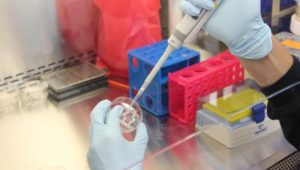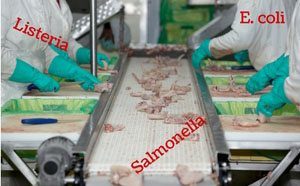
Q Laboratories Purchases Buildings
Q Laboratories has purchased two buildings (1920 and 1930 Radcliff Avenue, Cincinnati, Ohio) as part of their ongoing capacity expansion project. The two buildings sit adjacent to the 30,000 sq. ft. laboratory building currently under construction, scheduled to be completed in Spring 2018. The newly-acquired buildings entail 25,000 sq. ft., and will eventually serve as









